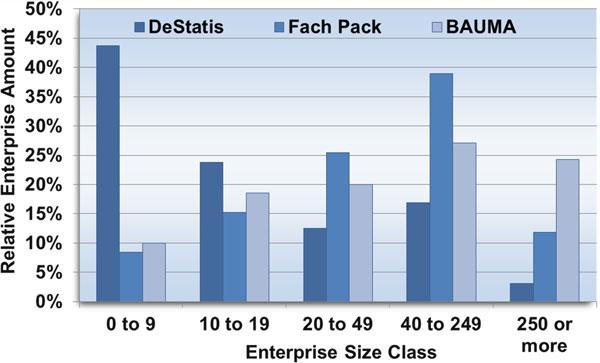3
Antecedents and Consequences of Entrepreneurial Orientation of Spanish Exporting…
27
Table 3.2 Parameters from hypothesis tests Hypothesis H1: Export manager characteristics–export entrepreneurial orientation H2: Proactive export manager values–export entrepreneurial orientation H3: Export entrepreneurial orientation–export performance Notes: ns no significant (one-tailed t(999) test); ***p < 0.001
β 0.236
t-Value 2.365***
Supported Yes
0.408
6.402***
Yes
0.388
6.088***
Yes
After having ensured the convergent of the measurement model, we tested the relationships between the different variables. We started by calculating, using the bootstrap method (1,000 subsamples), the different statistical parameters (Table 3.2). Although many researchers opt for 500 subsamples in their studies, and this is sufficient, in the current work we decided to use 1,000 to reduce the randomness (Davidson and MacKinnon 2000). The hypothesis tests considered the sign and significance of t-values in each relation (β coefficient). The variance explained values of the different endogenous constructs are given in the discussion section.
3.5
Discussion and Conclusions
The discussion is organized around the main objectives of this research. The first of these is the validation of the proposed theoretical model. This model offers a suitable framework to explain how characteristics and managerial values play a key role in entrepreneurial orientation of exporting SMEs in times of crisis, conditioning the export performance. Focusing on the relationships between variables and taking the global model as a reference, a number of conclusions can be drawn. Firstly, in times of crisis, the international experience, language skills, and specific experience in export activities of managers influence significantly with regard to set up a entrepreneurial culture in exporting SMEs, confirming H1 (β = 0.236, t-value = 2.365). Managers have values and mental models that influence how they interpret the changes in their environment, affecting the actions and decisions they have to take (Johnson and Hoopes 2003; Nadkarni and Barr 2008). However, personal characteristics exert a fundamental influence in the formation of these values and orientations (Hambrick 2007; Katsikea and Skarmeas 2003). Thus, international experience of managers encouraged the formation of values likely to changes, reinforcing the development of an entrepreneurial culture in relation to the export activity (Axinn 1988) and decreasing risk aversion associated with exporting (Gray 1997). Secondly, entrepreneurial orientation of exporting SMEs, which has an explained variance of 33.5 % (R2 = 0.335), is affected significantly for the proactivity showed by managers responsible for the export activity, from the point of view of values






